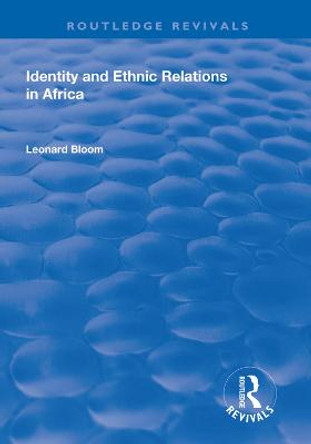Description
This volume explores how the people of littoral East Africa imagined and reimagined their communities over two millennia of engagement with Indian Ocean transformations-from the settlement of Bantu speakers near the coast around the first century CE to their participation in transoceanic commerce, imperial rivalries, colonial projects, and decolonization movements in the mid-twentieth century. Like other histories of the Indian Ocean, it emphasizes the circulation of people and ideas, but its cis-oceanic approach demonstrates how these littoral communities continued to integrate strategies from those in Africa's interior as well as from people who traveled the ocean.
The book also clarifies the precise relationship between ethnicity and other kinds of identities by expanding the conventional focus on Swahili people to speakers of Sabaki Bantu languages, as well as to Mijikenda, Pokomo, and Elwana communities, whom Indian Ocean scholars often overlook. By examining all these groups' shared linguistic heritage, the book outlines their forebears' innovation and transformation of lineages, clans, confederations, councils, title societies, age sets, moieties, religious sects, and tribes. Drawing together evidence from linguistics, archaeology, ethnography, oral traditions, travelers' accounts, and colonial records, the book explores how the speakers of Sabaki languages continuously reconceptualized their identities in littoral East Africa as the political topography of the Indian Ocean world changed around them.
Moving seamlessly across multiple precolonial and colonial eras and beyond, this deep history of collaboration and political imagination leads readers through the transitions of identity that mattered to littoral East Africans. The book fills the need for an updated synthesis of East Africans' engagements with diasporic communities in Indian Ocean and world history courses. In addition, since most African history publications for classroom use in recent years have focused exclusively on modern times, it satisfies the demand for works that span the early and modern eras.
Beyond the classroom, the book will interest specialists in the history of the Indian Ocean, Africa, Islam, imperialism, and ethnohistory. A major contribution of this multidisciplinary work is to present the research of archaeologists, anthropologists, linguists, and historians to one another in an accessible, jargon-free manner. While Africanists will appreciate how the book expands the boundaries of the Indian Ocean to include oft-ignored communities, Indian Ocean specialists will find models for investigating the construction of ethnicity and other collective identities across multiple centuries.
An investigation into the construction of ethnicity and other collective identities in communities along the Kenyan coast across two millennia.
About the Author
Daren E. Ray is an assistant professor of history at Brigham Young University, where he teaches African, Islamic, and world history. He has published his multidisciplinary research in History in Africa and Muslim World journals, The Swahili World edited volume, and elsewhere. He also co-organizes the Rocky Mountain Workshop in African History.
Reviews
A fascinating, thought-provoking, genre-bending study. This book charts new territory for Indian Ocean and East African Studies, incorporating influences from both land and sea across time, while centering vernacular cultures and politics. A ground-breaking reconceptualization of not only ethnicity, but also kinship, Islamization, urbanization, and the oceanic. -- Bettina Ng'weno, University of California, Davis
Daren E. Ray's history of Kenyan coastal identities ranges over two millennia through changing social formations using a community-centered approach. His work is exemplary cross-disciplinary scholarship, featuring deft use of archaeological, linguistic, and ethnographic data as well as oral and written sources. A mosaic of words, objects, and experiences illuminates nested identities, all in motion in the East African and Indian Ocean worlds. An engaging narrative from start to finish, this book will be welcomed across many fields of inquiry and in a wide range of classrooms. -- Adria LaViolette, University of Virginia
An impressive work of detailed and meticulous scholarship that is unreservedly recommended as a core addition to personal, community, and college/university library East African history collections and supplemental linquistics and Black studies curriculum lists. * Midwest Book Review *
Book Information
ISBN 9780821426135
Author Daren E. Ray
Format Paperback
Page Count 312
Imprint Ohio University Press
Publisher Ohio University Press







